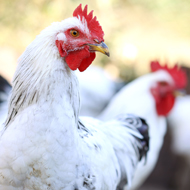Disease names should not impact animal welfare and tourism - WHO

Examples of the types of names to avoid are: Spanish flu, Lyme disease, swine flu, bird flu and equine encephalitis.
New diseases in humans should be given names that do not cause offence or have a detrimental effect on tourism, trade or animal welfare, the World Health Organisation (WHO) has said.
In a new best practice guide, WHO urges scientists and the media to avoid using geographic locations, people's names, species of animal, types of food, references to culture, populations, occupations and industry, as well as 'terms that incite undue fear'.
Examples of the types of names to avoid are: Middle East respiratory syndrome, Spanish flu, Lyme disease, Creutzfeldt-Jakob disease, swine flu, bird flu and equine encephalitis.
According to WHO's guidance, disease names should consist of a combination of terms, including:
- Generic descriptive terms, e.g. respiratory disease, neurologic syndrome and enteritis
- Specific descriptive terms (preferably plain rather than technical), when the available information is sufficiently robust, e.g. progressive, juvenile etc
- The causative pathogen (if known) alongside other descriptive terms, e.g. novel coronavirus respiratory syndrome
WHO's guidance has been developed in collaboration with the World Organisation for Animal Health and the Food and Agriculture Organisation of the United Nations.
It is not intended to replace or interfere with current processes for assigning a final disease name, but covers the interim period between the identification of a new disease and the assigning of a final name.
For the full best practice guide, visit: http://apps.who.int/iris/bitstream/10665/163636/1/WHO_HSE_FOS_15.1_eng.pdf?ua=1



 The latest
The latest